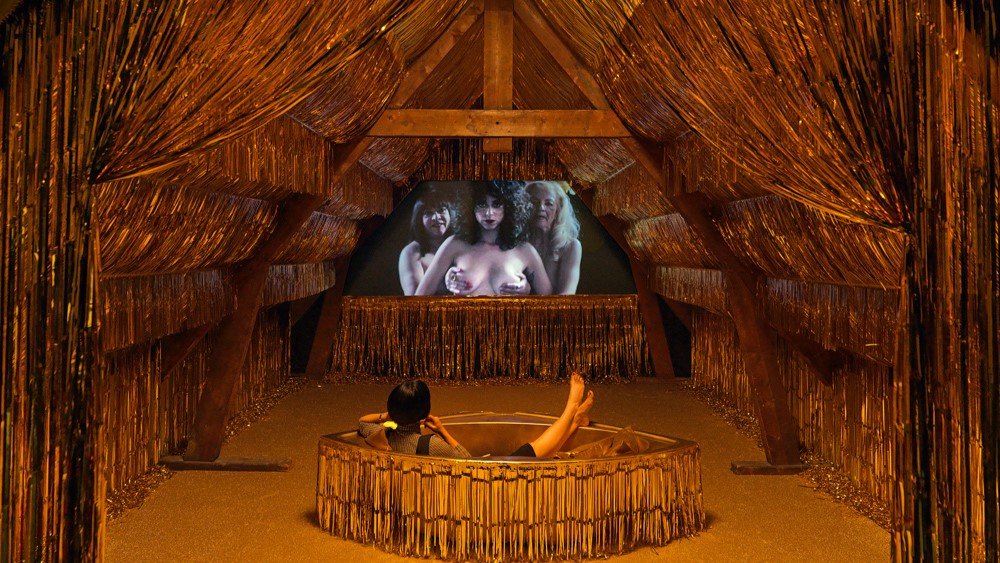
Samantha Nye
Visual Pleasure Jukebox Cinema, 2021:
- Daddy, 2:59 min
- Silencer, 3:10 min
- Calender Girl, 2:58 min
In her sultry videos, Samantha Nye plays with societal conventions about age, race and queer identity. With a cast of mostly older women, including her own mother and grandmother, she celebrates and explores queer spaces of the past and the present. The triptych is partly based on the titillating films made for the Scopitone video jukebox in the 1960s. Using the aesthetics of an extinct jukebox, Nye ridicules conventions about the vanishing beauty of older women. She sensually celebrates her own queer community, while showing what can be done differently.
somatic exercise
Breathing – Energetic breath.
Notice your breath and how your body is feeling. Keep your knees bent or find a comfortable place to sit and feel the soles of your feet on the floor. Feel how you are supported by the ground or your seat.
Start by taking 5 short sharp inhalations through the nose into the chest. Notice how your chest expands and your shoulders rise. Then take a long exhale through the mouth and squeeze your body to push all of the air out. Once all the air is out, take a second to rest and repeat.
You can follow this breath for 3-5 rounds or as many times as you like. As you come to a finish, scan your body and notice how you feel. This breath excites your nervous system and brings more energy and alertness to the body.
Homework – Age, race and identity norms.
We live in a society that states all individuals have equal rights, liberties and status, including civil rights, freedom of thought, opinion and expression, autonomy and equal treatment. However, in our day to day lives, people are overtly or covertly discriminated against based on differences such as race/ethnicity, gender, sexual identity, gender identity, ability, age, weight, and other things to do with how people look.
Age norms are based on the societal rules for age-appropriate behaviour, including everyday activities and the timing or sequencing of significant life events.
Race is defined as “a category of humankind that shares certain distinctive physical traits”. Within a society, the leaders can give benefits to dominant members that are deemed “normal” or limit opportunities to members that fall into “other” categories. A person of the non-dominant group can experience oppression in the form of limitations, disadvantages or disapproval.
Identity is both constructed internally and externally. In society gender and sexual norms are the principles that govern the behaviour and beliefs that should be adhered to, to fit into society. These norms restrict gender and sexual identities to what is considered to be appropriate. It might be helpful to use a journal for the following questions.
- Can you think of a prejudiced attitude you have held toward a group of people? How did your prejudice develop?
- What are some stereotypes for age, race and identity that you have?
- Have you experienced or witnessed racism, ageism or homophobia (inc LGBTQ)? Are you aware of these issues in your community?
- Think about your identity and if it gives you a position of privilege or marginalisation?
- With what you know now, how can you show up for yourself and others more?